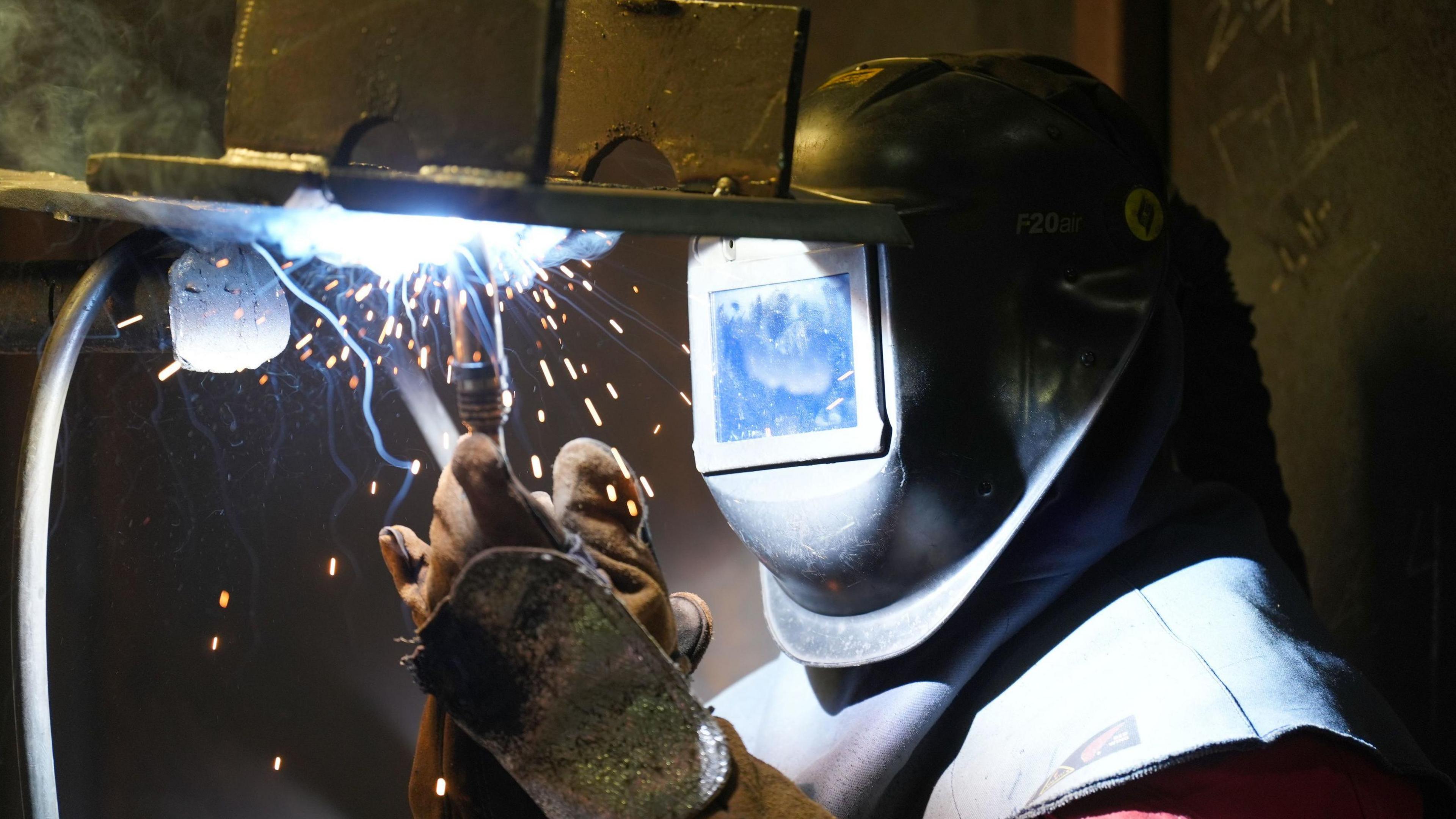Unions in call to save Harland and Wolff's Scottish yards

Fabrication workers at Harland and Wolff's Scottish yards are facing an uncertain future
- Published
Trade unions in Scotland are calling on the UK and Scottish governments to get behind fabrication yards in Fife and Lewis, as their parent company faces severe financial difficulties.
Harland and Wolff, based in Belfast, says it needs £200m to re-finance.
It has seen a sudden change of management and the appointment of financial specialists to assess its options. That usually signals a new investor, a sale, or break-up.
The UK government has refused to offer either emergency cash to keep the company solvent or a loan guarantee for the amount, saying it would pose a "very significant risk" to the UK taxpayer.
Harland and Wolff operates the historic shipyard where the Titanic was built in Belfast more than a century ago.
The company took over the Scottish yards in 2021, after they had entered administration.
It also owns the Appledore shipyard in Devon, with a total of around 1500 workers.
Both the GMB and Unite, representing workers at the Harland and Wolff fabrication yards in Lewis and in Fife, are warning that nearly 400 Scottish jobs look vulnerable.
GMB Scotland secretary Louise Gilmour has written to Scottish Secretary Ian Murray, Deputy First Minister Kate Forbes and UK Industry Minister Sarah Jones to raise the plight of the Scottish yards.
“The recent history of the Scots yards has been one of squandered opportunities," she said.
"The workers are skilled, committed and blameless for the ongoing uncertainty around their yards."

The GMB's Louise Gilmour has written to UK and Scottish ministers
The company is not facing problems with an empty order book or even a downturn in orders.
It has work building 33 large barges to carry waste down the Thames for recycling.
Harland and Wolff chief executive John Wood, who was required to take an immediate “leave of absence” last Friday, claimed the company was bidding for a billion pounds worth of work.
It already has a significant part of the contract to build supply ships for the Royal Navy.
Its Scottish yards in particular are well placed on the nation's south-east and north-west coasts to win work as supply bases - if not manufacturing, then for the offshore wind industry.
These are some of the considerations for the UK government's business department when it considered an application for £200m of loan guarantee. These are commonly used to support exports.
Government money is not loaned, but it is put at risk if the commercial loan goes wrong. The guarantee means the government would have to cover losses.
Ministers were not willing to do this.
It was described as a "very significant risk" to taxpayer funds by Westminster's business secretary Jonathan Reynolds.
No emergency cash will be approved by the new Labour government.
Ministers believe the market is best placed to resolve the commercial matters faced by Harland and Wolff, according to a written statement by Mr Reynolds.
A 'secure future'
These are difficult words for an incoming Labour politician, carrying the expectations of a changed approach to industrial policy as it might affect shipyards with numerous workers and a Royal Navy contract.
He went on to acknowledge the concern for workers and those in companies supplying the yards, saying he is working with devolved governments and unions.
But this is an early indication both to Harland and Wolff and others that they cannot look to Whitehall for bailouts.
With a specialist bank looking at "strategic options" - which usually means a sale or break-up of assets - the question for Methil and Arnish is whether they are core to the company's strategy.
A review of Harland and Wolff might wish to focus on the assets it needs to fulfil the Royal Navy order, for which the yards in Belfast and Devon are better equipped.
Arnish and Methil provide extra capacity for modules for that work, but for the core mission look more dispensable.
Louise Gilmour there are many options to protect the yards, some involving the manufacture of wind turbines and other renewable energy infrastructure.
“If talk of a just transition is ever to be more than empty words, these workers and their yards must have a secure future as part of a new industrial strategy for Scotland," she said.
“It is not enough just for the yards to survive, they must be supported to thrive."